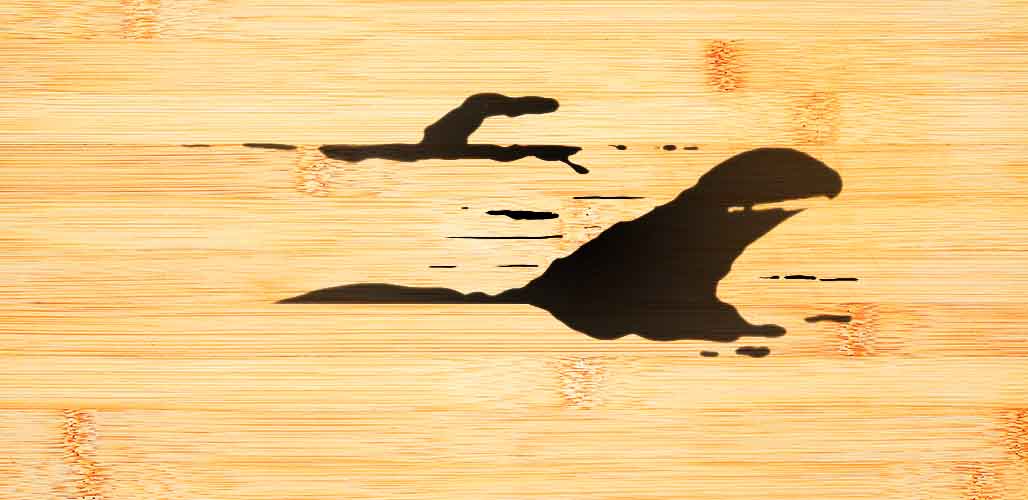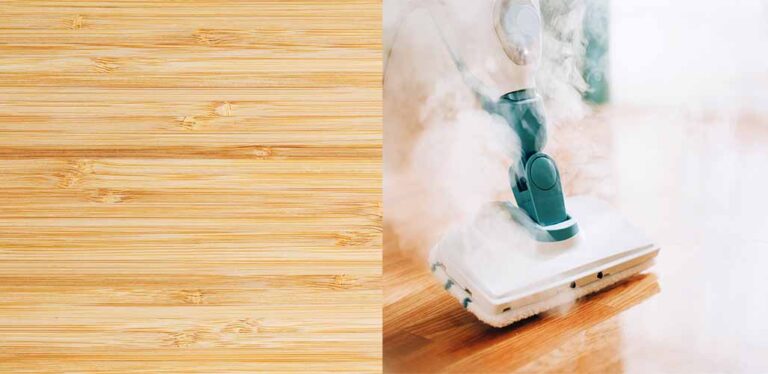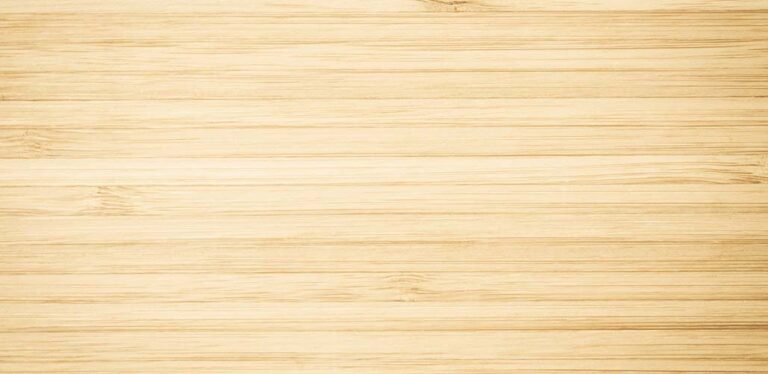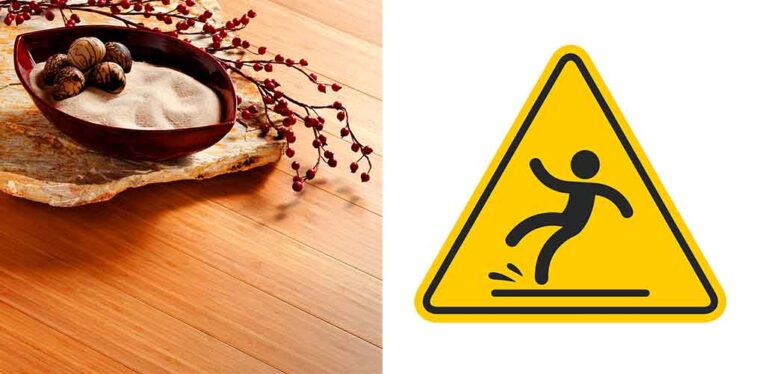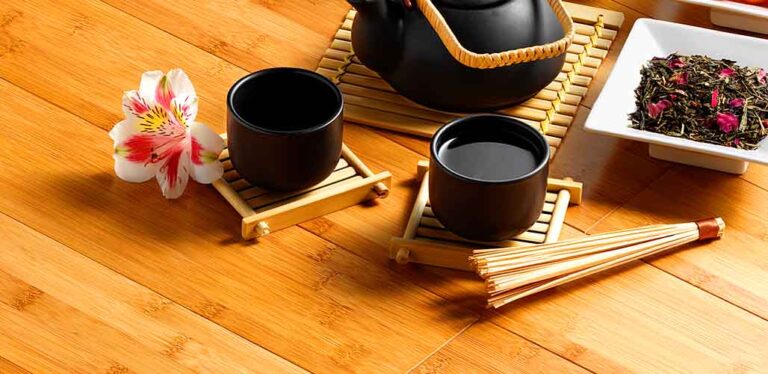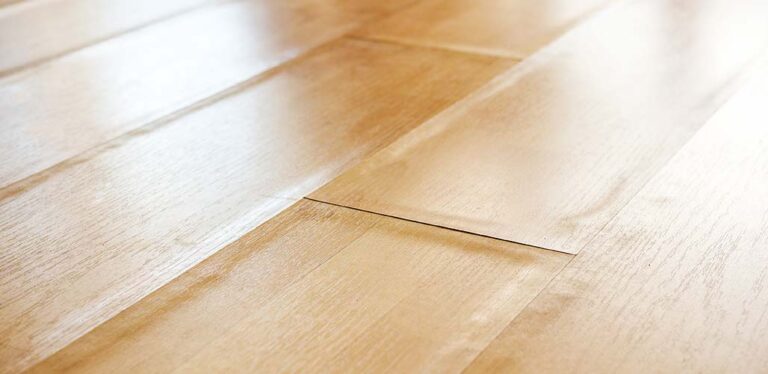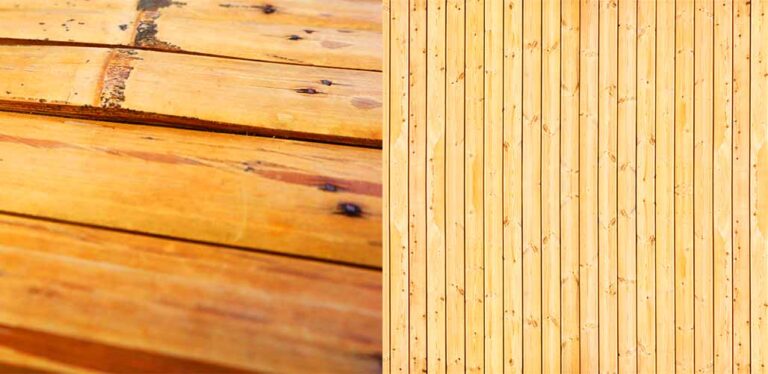Why is my Bamboo Floor Turning Black?
Why is my bamboo floor turning black? Out of all the hardwoods, bamboo is one of the most attractive flooring materials. It is also my personal favorite, so I understand the frustration when it starts to discolor and turn black. There are two main reasons why your bamboo floor darkens. Your floor is either getting too much sunlight, or water damage is at play. Which issue you are having depends on several variables including what type of bamboo floor you had installed. Luckily, there are some things you can do to avoid discoloration from occurring. Today, I’ll take a closer look at why bamboo floors turn black and how you can prevent it.
Contents
- Different types of bamboo flooring
- Why bamboo floors turn black
- How to remove black spots from bamboo floors
- How to prevent black spots on bamboo floors
Different Types of Bamboo Flooring
Bamboo flooring is made out of bamboo grass found in the center of the bamboo stalk. For vertical and horizontal planks, the grass is binded with glue. Resin is used when making strand-woven bamboo flooring. From there, you end up with one of two kinds of bamboo flooring.
Natural Strand Bamboo Flooring
Natural bamboo flooring has lighter colored planks with a more modern feel. They are a great deal stronger than their counterparts and are two times stronger than red oak. This version of bamboo flooring is more affordable, but the difference is made up in maintenance. Due to the lighter color, dust and debris is easily visible. Be prepared to spend a lot of time sweeping and vacuuming.
Carbonized Strand Bamboo
Carbonized, or engineered, bamboo is the darker version of this flooring. Unlike natural bamboo planks, carbonized flooring is either smoked or steamed giving it a deeper, richer color. While the color difference may be appealing due to its versatility, carbonized bamboo is 30% weaker than natural bamboo and other hardwoods. It is also more likely to darken.
Why is my Bamboo Floor Turning Black?
There are two main reasons why your bamboo floor becomes dark and produces black spots; sunlight and water damage. Both culprits can be avoided and even repaired under the right circumstances. Let’s take a closer look at each of them next.
UV Light
Bamboo floors become discolored because of the sun’s rays. UVA and UVB rays cause a reaction in bamboo over time that not only changes the color but also weakens the integrity of the wood. This is why it’s important to know what type of bamboo hardwood you have. For example, sunlight is more apt to darken natural bamboo flooring while it’s more likely to lighten carbonized bamboo.
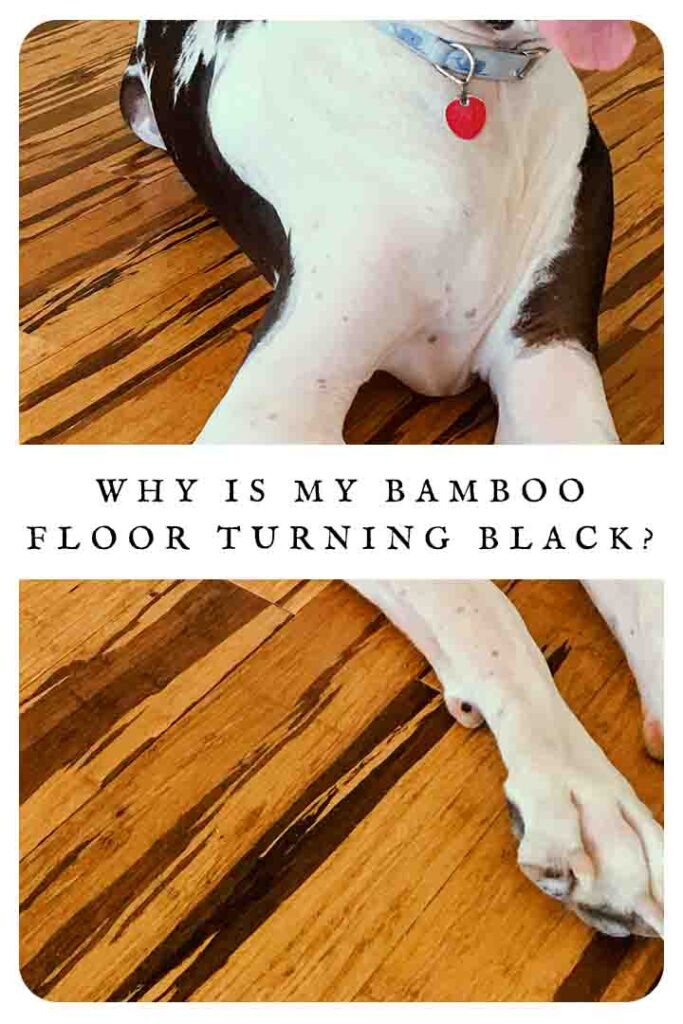
Water and Moisture Damage
If you have carbonized bamboo flooring, black sports are likely caused by water damage. Treated bamboo is more likely to absorb water than most other hardwoods, in general. This is why carbonized bamboo is not recommended in rooms where humidity levels are high like bathrooms and kitchens. While black spots are unlikely to show up right away, you will notice discoloration quickly.
Removing Black Spots From Bamboo Flooring
The good news is black spots on carbonized bamboo can be treated. You need to assess how deep the stain has penetrated the wood, however. If it’s a surface stain that’s only affected the finish, it can likely be rubbed away. Use a solution of either mayonnaise and cigar ashes or, if you don’t have those ingredients, try baking soda and white toothpaste. Rub the solution into the bamboo. Scrub in the direction of the grain until the dark spot has faded away.
If the discoloration has penetrated the bamboo itself, you will need to go a few steps further:
- Start by sanding away the finish over the black spot.
- Once the finish is removed, paint on a solution of equal parts wood bleach (oxalic acid) and water over the black spot. Let it sit for an hour. Repeat if necessary.
- Once the stain is gone, apply a mixture of baking soda and water. Let it sit overnight. The following day, give the spot a light sanding, and apply a layer of polyurethane.
Refinishing Bamboo Floors
Bamboo floors that are in tough shape with a lot of discoloration are not a candidate for spot cleaning. If this is the case, you might want to consider refinishing the bamboo to bring it back to its former glory. Keep in mind, however, carbonized bamboo can only be resurfaced twice as the surface layer is thinner than its natural cousin. Natural bamboo flooring can be refinished between two and four times.
Preventing Black Spots on Bamboo Flooring
We already know that the two major causes of discoloring for bamboo flooring are UV light and moisture damage. But, you don’t need to wait for these marks to appear. There are steps you can take to prevent them altogether, regardless of the type of bamboo flooring you have.
Protecting Bamboo Floors from Sunlight
First, pay attention to when the sun is at its strongest. If you’re like me, you’ll want to draw the curtains between 10 AM and 4 PM on the side of the house that gets the most light. It’s also important to diffuse the light in the Spring and Summer and if you:
- Live close to the equator
- Live at higher altitudes
- Sunny days
- South-facing windows
Other options for protection include getting a protective finish, rearranging the furniture every so often, and using area rugs.
Protecting Bamboo Floors from Water
Sunlight isn’t the only danger when it comes to discoloring bamboo floors. Preventing water damage on bamboo flooring is easy, as long as you’re happy to put in a bit of extra work. My top tips include:
- Wiping up spills right away
- Keeping humidifiers on low
- Avoid mopping with an excess of water
- Avoid anything that can trap water
Additional Things to Avoid
Although UV light and moisture are the main ways your bamboo floor can develop dark spots, there are a few other things you should be aware of to keep them looking fresh and new.
First, keep in mind that moisture can cause black spots on natural bamboo, though it takes longer. Conversely, sunlight can affect carbonized bamboo, except, in this case, it will lighten the wood. Some additional darkening factors you should be cautious of are:
- Using acidic or ammonia-based cleaners
- Using vinegar on your bamboo
- Latex and rubber-backed mats that can trap moisture
- Finishes and waxes not meant for bamboo flooring
Why is my Bamboo Floor Turning Black?
When all is said and done, knowing what type of bamboo flooring you have is key to preventing black spots and discoloration. This knowledge gives you the info you need to keep your bamboo floors looking brand new. Prevention is key when it comes to avoiding black marks. So, be aware of sunlight on your floors, and do your best to keep your home and flooring dry and clean.

